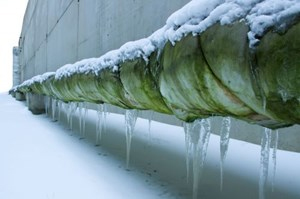

(Bloomberg) — Texas’s top oil and natural gas regulator adopted a new set of weatherization rules more than a year and a half after a deadly winter storm hit the state and left millions without power for days and left more than 200 people dead.
The three elected Republican officials overseeing the Texas Railroad Commission voted unanimously to adopt the state-mandated rules, which require critical natural gas suppliers to implement measures to stay in operation during a weather emergency that puts the state grid at risk that puts the state power grid at risk.

The final version of the rules has yet to be released to the public but agency staff said during a meeting Tuesday that a list of specific weatherization practices was removed in favor of creating an agency guidance document that can be updated as technology and industry practices change.
In response to public comments, commissioners also voted unanimously to amend a previously adopted critical infrastructure rule that categorizes oil and natural gas wells based on production. Natural gas wells must now produce 250,000 cubic feet per day to be considered critical to the grid, a more than 16-fold increase from the previous threshold of 15,000 cubic feet. Oil wells that produce gas as a byproduct must now produce 500,000 cubic feet per day to receive the designation, a 10-fold increase.
The changes are expected to keep roughly 78% of the state’s daily natural gas production designated as critical infrastructure, which the agency estimates will protect 23 billion cubic feet of daily production.
Railroad Commissioner Jim Wright said the amended rules focus on large producers rather than burden family-run companies with expensive regulations that could put them out of business. The South Texas rancher-turned-regulator said the state law that mandated the agency create the weatherization rules focused too much on upstream production rather than incentivizing natural gas storage to improve resiliency for power plants during extreme weather events.
“It’s like using a shotgun when a .22 would suffice,” Wright said.
Regulators are expected to adopt the state’s Electricity Supply Chain Map in September, when operators are also required to begin submitting their critical infrastructure designations and exemption requests to the Railroad Commission.